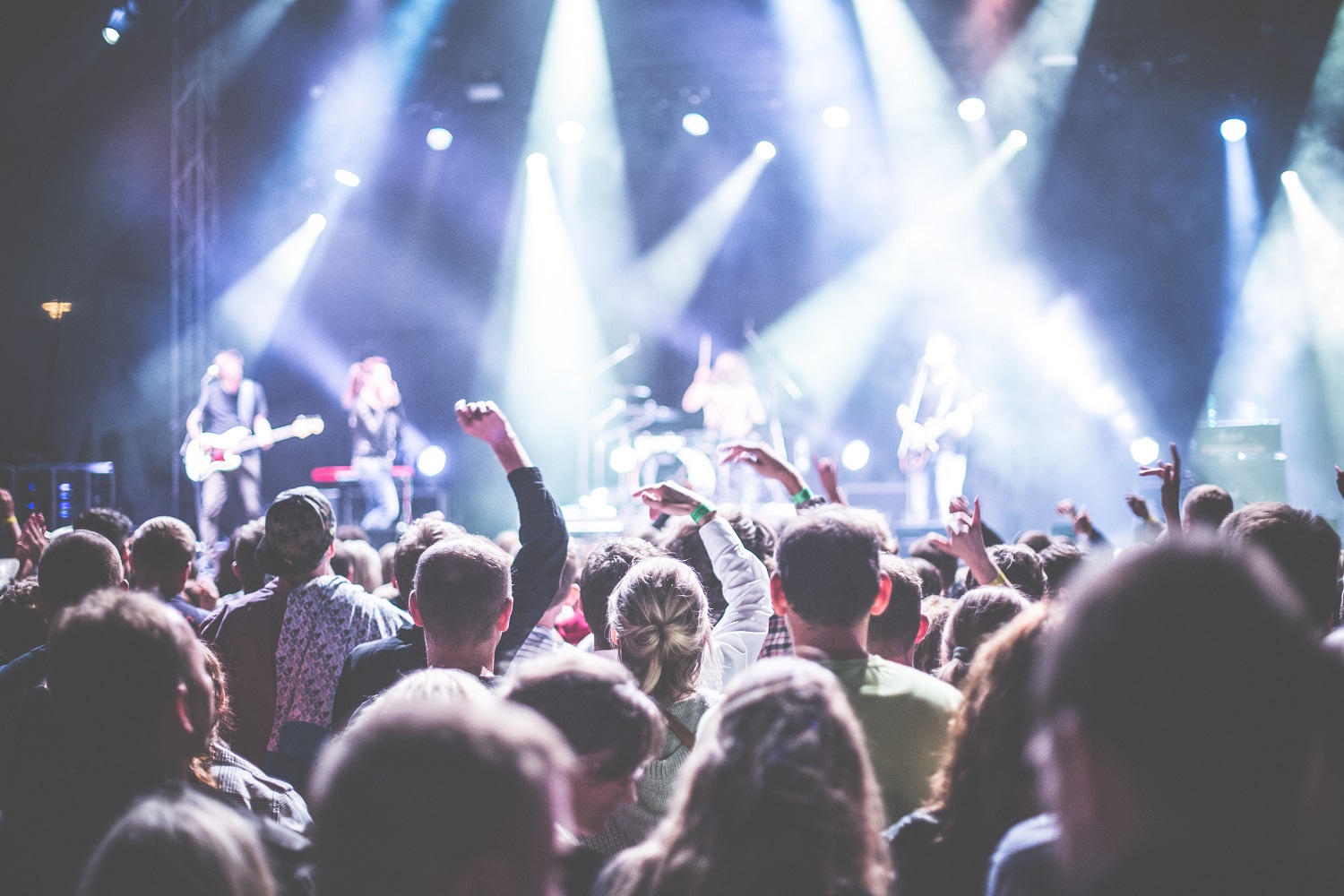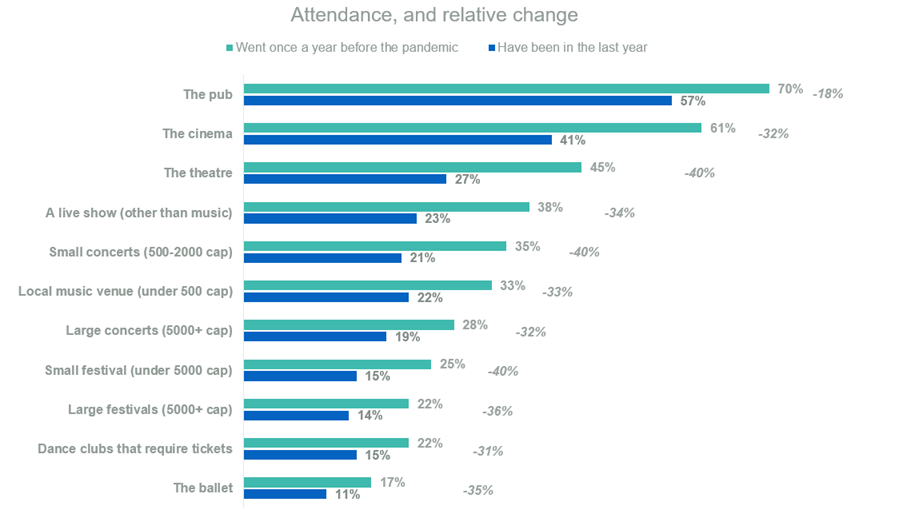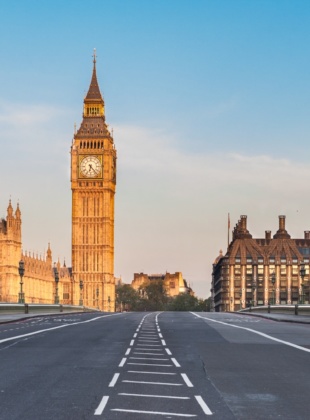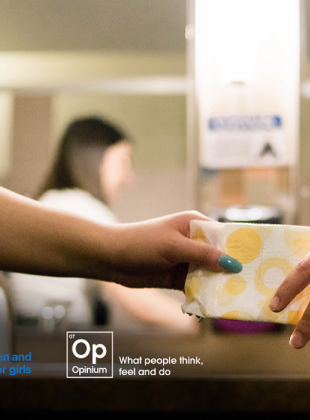Live music is back, but some fans will need a nudge

The ‘new normal’ is still a long way from the old normal, and live music is on the front line
Over half (55%) of UK adults’ attitude towards attending events in general has changed since before the pandemic. Key changes include attending fewer events overall (20%), not having as much energy to go out and not thinking about going to live music (both 15%) and, for over one in eight (13%), travelling to events now feels like a lot of effort.
Almost a year on from Freedom Day in the UK it is interesting to look at the difference between pre- and post-lockdown habits (looking at those who attended a range of social opportunities at least once a year, and whether they have been back since). It is no surprise that the pub has seen the most returning punters given it offers relatively low-cost socialisation, typically in a local environment and with little to no prior planning required. However, nearly 1 in 5 people (18%) who went to the pub pre-pandemic have not been back since.
This provides an interesting insight in to the disconnect between pre and post pandemic life. Even a trip to the pub is still off the agenda for a large number of people.
Live music is back, but some fans are yet to experience it
The consumer picture is starker for live music events, where mid-sized music venues (500-5000 capacity), in particular, are still struggling to bring people back in, with 2 in 5 (40%) previous attendees not yet returning. The picture for grassroots music venues (down 33%) and large concerts (down 32%) is marginally better, but far from ideal, with 1 in 3 fans yet to come back.
This is not necessarily a bad news statistic for a live music industry that is selling a lot of tickets this summer, but it does highlight the need to bring a wide range of people back in order to maximise the potential of the sector as it rebuilds.

Cost of living, postponed shows and last minute buying are ongoing challenges
There are a number of macro challenges facing the whole economy, not least the rising cost of living with 21% of people cutting back on expenditure. There is the additional challenge of people going out less (20%), not having energy for going out (15%), and feeling travel is a lot of effort (13%) – which is, we feel, exacerbated by people working from home.
However, there are a number of challenges that are specific to live music; chief among them being the fact that fans still have tickets for shows postponed during the various lockdowns that are yet to take place. Over a quarter (28%) of UK adults hold tickets for live music events from during the pandemic that are still awaiting their rescheduled date. Amongst those who hold rescheduled tickets, on average they are awaiting new dates for 2.3 events! Of those who hold rescheduled events tickets, 14% are waiting until these events happen before booking new ones.
One concerning trend is that people are waiting until the event is closer before buying tickets which creates a challenge for artists and event organisers who need to invest accordingly. While 12% of the general population are waiting longer than before to buy tickets, that jumps to 19% when you look at the heaviest music fans. That might change as people get used to being active again, but it is something to manage in the medium term.
With a proportion of consumers either out of the habit of attending gigs or facing a real squeeze on their disposable income (or both) the live music industry needs to work hard to maximise attendance. It would, no doubt, appreciate support from Government on both fronts.




